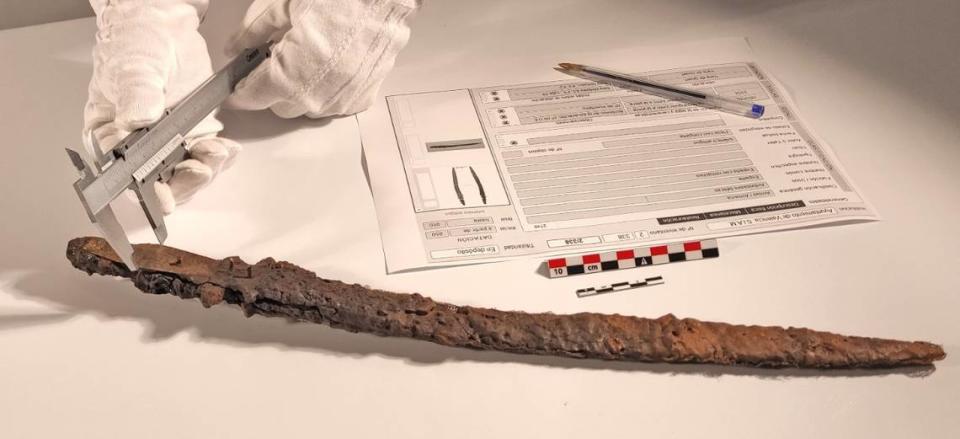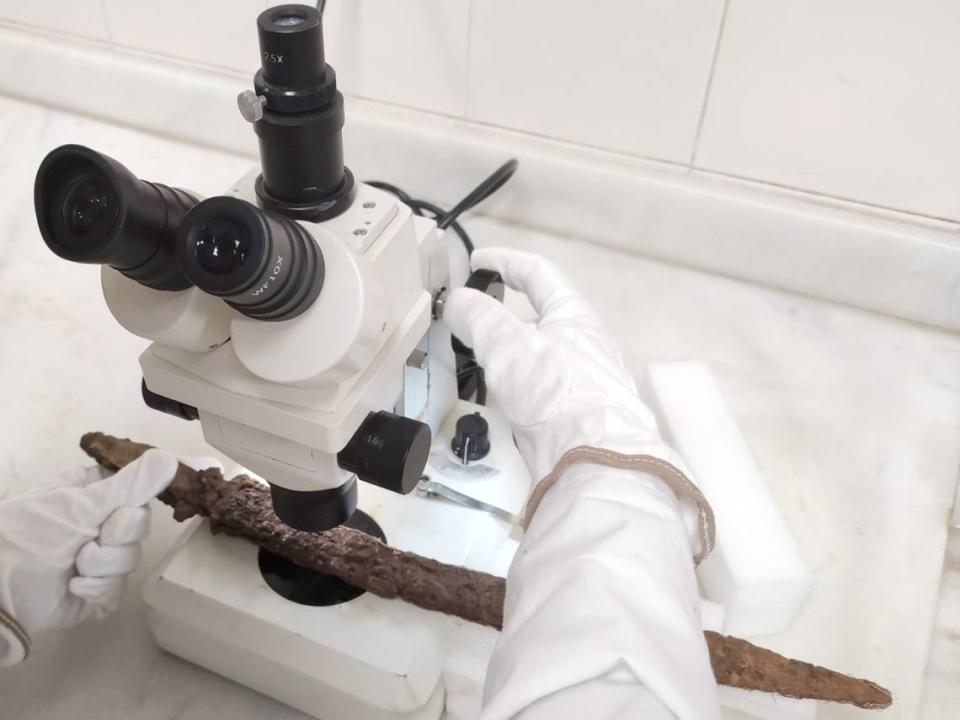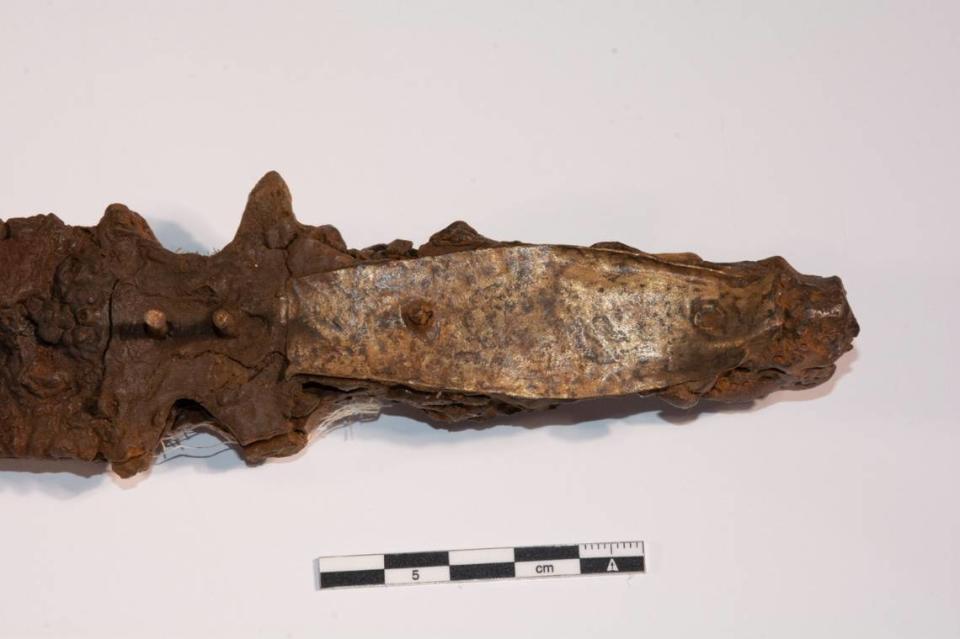The mysterious sword seemed to just appear from the ground.
Archaeologists found the sword sticking out of an ancient grave when they excavated a house in Valencia, Spain, in 1994. The weapon was dubbed ”Excalibur” after the mythical sword King Arthur pulled from a stone.
For the past 30 years, the sword’s origin and age have remained a point of confusion — until now.
Valencia’s archaeology department decided to catalog and review the artifacts in its collection ahead of its 75th anniversary, the City Council of Valencia said in an April 22 news release. One of those artifacts was the Excalibur sword.
Archaeologist José Miguel Osuna did a detailed analysis of the weapon and identified it as a 1,000-year-old Islamic sword.


Uncover more archaeological finds
What are we learning about the past? Here are three of our most eye-catching archaeology stories from the past week.
→ Farmer loses plow part in Polish field — then finds historic artifact during search
→Divers remove ancient Roman cargo from shipwreck — and find unique carvings. See them
→ Metal detectorists find ancient portrait in Danish field. See the ‘legend’ it depicts
The city council shared photos of the first-of-its-kind weapon on X, formerly Twitter. The sword measures about 18 inches long and has a slightly curved blade. Its hilt has several bronze plates designed to be easy to handle.


The sword dates to the 10th century when Valencia and surrounding regions of Spain were part of a Muslim kingdom known as Al-Andalus, city officials said.
The Al-Andalus kingdom, whose name later inspired that of Andalusia, thrived in modern-day Spain and Portugal from 711 until the early 1000s, according to Britannica.


The Excalibur sword is the first Islamic sword found in Valencia, archaeologists said. The rarity of these artifacts is partly due to the make-up of the soil in Spain, which impairs their preservation.
Archaeologists identified the Excalibur sword based on the size and shape of its blade, the handle design and the material that surrounded it in the grave, city officials said.
Valencia is along the eastern coast of Spain and a roughly 230-mile drive southeast from Madrid.
Google Translate was used to translate the news release and X, formerly Twitter, post from the City Council of Valencia.
Worker spots muddy lump — and solves 116-year-old puzzle. See the ancient Roman find
Ancient city was destroyed by ISIS. Now, its mirror image found in ‘forgotten’ ruins
Ancient Roman graveyard — with over 1,400 tombs — unearthed in France. Take a look


